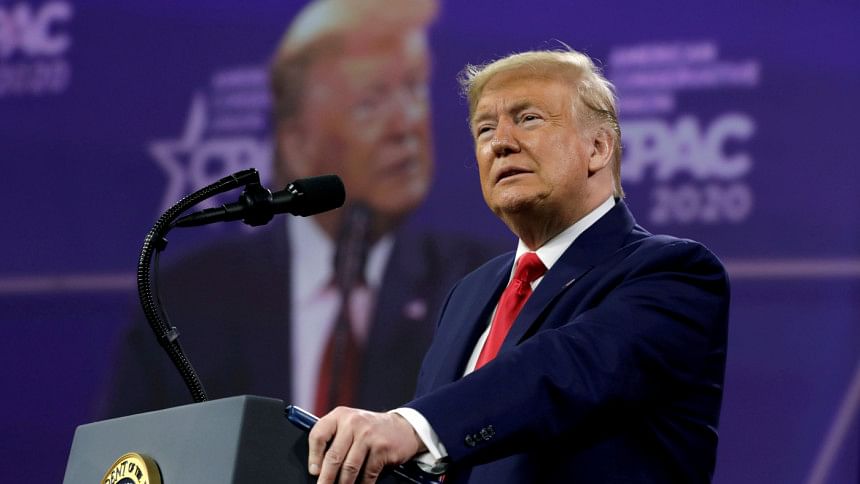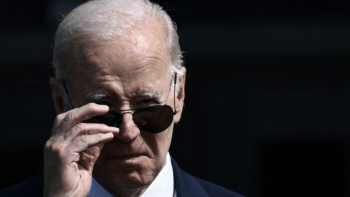Will a second Trump presidency really change much?

In spite of facing 91 felony counts, including accusations of trying to subvert democracy, former President Donald Trump is widely anticipated to be the Republican nominee for the 2024 US presidential election. Simultaneously, incumbent Joe Biden, despite enduring a record low approval rating in his third year—surpassed in history only by Jimmy Carter—appears poised to clinch the Democratic nomination unopposed. Seeing a Trump-Biden rematch on the horizon, no one is as displeased as the US citizens, most of whom want "another choice," according to a recent survey by Harvard University and The Harris Poll. The sense of resignation among the US electorate is mirrored by global concerns, and is further amplified by recent polls showing a four-point lead in Trump's favour over Biden. The apprehension and uncertainty surrounding a potential second Trump presidency echoes strongly in Europe, particularly in relation to their security, transatlantic relations, and the broader international order. This concern is further exacerbated by Trump's well-known disdain for Nato, raising questions about the future of this pivotal alliance and European security at large.
In regards to Russia's war against Ukraine, Trump promised to end the war within 24 hours and did not commit to backing Ukraine, with his rhetoric extending to the GOP who has put up resistance in passing aid. Trump is expected to "U-turn radically" on the Russia-Ukraine issue, with fears looming that he will abandon Kyiv unless it accepts a US-brokered peace deal. Interestingly however, despite having provided $75 billion in aid and pushing for an additional $60 billion, a potential second Biden administration is anticipated to follow a similar path. This comes after Russia gained more territory than Ukraine in 2023, and the latter's strategy for this year includes no plans of retaking any of the lost territory. The Biden administration is not expected to push a pessimistic outlook after throwing their weight behind Ukraine. The administration is even more unlikely to admit this before the election, as that would undoubtedly cast doubt on his management of the conflict. If re-elected, however, there is an expectation that the incumbent administration will encourage Kyiv to move towards a peace settlement, which will likely involve territorial concessions. This theme of Trump and Biden essentially singing the same song, albeit with different tunes, is similarly echoed in another major conflict of the election year: the devastating situation in Gaza, where Israel stands accused of "plausible genocide" in the International Court of Justice.
Although Trump seems to have a personal vendetta against current Israeli Prime Minister Benjamin Netanyahu, he is expected to stand firmly behind Israel. Trump's presidency was fervently pro-Israel—a stance his campaign continues to emphasise. Notably, he exited the Iran nuclear deal, relocated the US Embassy in Israel to Jerusalem—recognising it as the capital—and shuttered the Palestinian consular office in Washington. His administration embraced a pro-settler stance in Israel, recognising Golan Heights and even having a settlement named after him. When Biden assumed office, expectations of a policy shift—towards protecting Palestinians—were high.
However, his administration's actions have, in many ways, continued on in the trajectory set by Trump. For instance, despite initial promises, re-engagement with the Iran nuclear deal was stalled. The approach of the Biden administration towards the Palestinian issue has not significantly differed from Trump's for the most part, marked by delayed efforts in reopening the Jerusalem consulate and a lacklustre commitment to peace negotiations. Moreover, Biden's administration, similar to Trump's, has sought to maintain strong ties and undyingly backed Israel as it carpet-bombed Gaza. Nevertheless, after significant pushback within his party and disapproval from young voters, Biden decided to sanction Israeli settlers who were accused of violence against Palestinians—a symbolic gesture to express disapproval of Israel's handling of the conflict.
These parallels extend to the broader Middle East strategy, where the current administration has demonstrated reluctance to significantly alter the US position or apply pressure on key regional players, especially following the normalisation of relations through the Trump-era Abraham Accords. Like Trump, Biden's primary focus in the Middle East has been on strengthening relations with Saudi Arabia. The administration's efforts to secure a security pact with Saudi Arabia are divorced from Biden's previous campaign promise to treat Saudi Crown Prince Mohammed bin Salman as a "pariah."
Regarding the Cold War with China, Biden's current policies appear different to a potential second Trump presidency only in style, but not in substance. During Trump's tenure, a significant shift occurred from the US' previous policies of economic engagement with China, where he chose to initiate a trade war marked by an overall confrontational approach. Although the trade war's outcomes remain debatable, the Biden administration has refined and escalated this strategy, placing export controls designed to hinder China's technological progress. This protectionist strategy has garnered bipartisan support, and been viewed as a tougher stance on China. Biden's protectionist economic policies have even been termed as "polite Trumpism." Both Trump and Biden share the need for "foreign policy for the middle class," protecting domestic industries in the US, from intellectual property theft and unfair trade practices of China. Therefore, regardless of the election's outcome, US policy towards China is anticipated to continue along its current path. However, some fear that a return of Trump might lead to a tougher posture towards Asian allies, mainly Japan and South Korea. He has criticised both nations for their dependence on the US, but a total security withdrawal is deemed unlikely due to the strategic necessity of challenging Beijing.
Lastly, regarding Trump's immigration policies—cracking down on immigrants continues to be one of his campaign's main talking points—experts note that no one truly knows the specifics, beyond his insistence on closing the southern border to asylum seekers. Trump has spent much of the past three years contesting his 2020 election defeat rather than outlining a coherent policy programme. But it must be noted that even on the border issue, though Biden castigated Trump's policies, his actions in the past three years have not been too dissimilar to Trump's. In fact, Biden seems to even echo Trumpian immigration policies, having promised to entirely shut down the US-Mexico border. Despite the uncertainties and fear surrounding a potential second Trump term—apart from his well-documented scepticism towards Nato—it appears unlikely that there will be significant shifts in the broader trajectory of US foreign policy, whether under a continued Biden administration or a Trump return.
Mahadev Ghosh is an independent researcher based in the UK.
Views expressed in this article are the author's own.
Follow The Daily Star Opinion on Facebook for the latest opinions, commentaries and analyses by experts and professionals. To contribute your article or letter to The Daily Star Opinion, see our guidelines for submission.

 For all latest news, follow The Daily Star's Google News channel.
For all latest news, follow The Daily Star's Google News channel. 










Comments